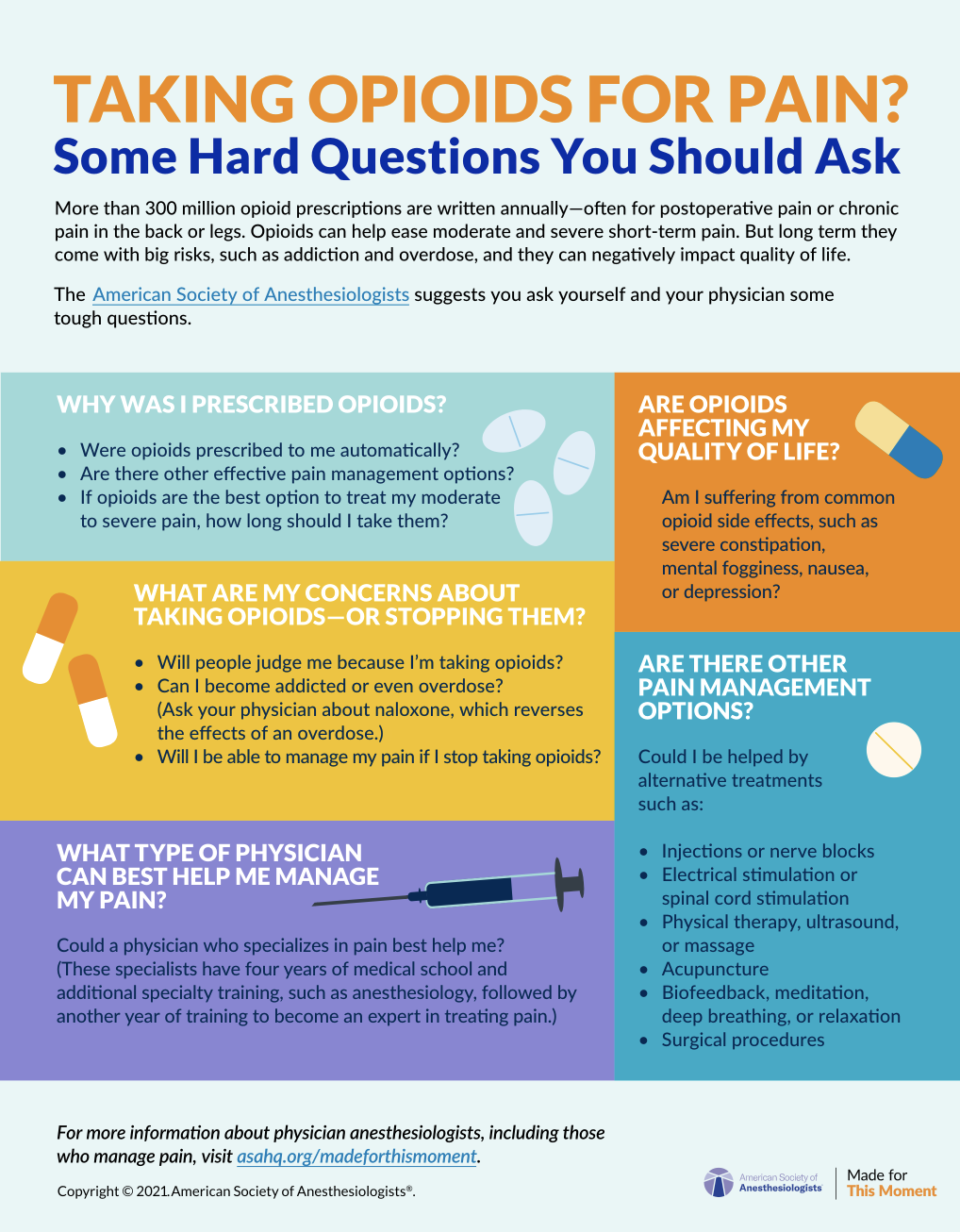Opiates are powerful drugs used for pain relief in medical settings and have been used for centuries to alleviate pain. But how do opiates work? In this article, we will explore how opiates help to relieve pain, the different types of opiates available, and the potential risks associated with using them. We will also discuss the importance of using opiates responsibly and safely. So, if you’re curious about how opiates can help with pain, read on!
Opiates are powerful pain relievers that work by activating opioid receptors in the brain and reducing the perception of pain. They can also reduce anxiety, stress, and produce a feeling of euphoria. Opiates are usually taken orally as tablets or capsules, but may also be injected or smoked. The effects of opiates can last for several hours, providing relief from pain and other symptoms.
- Step 1: Talk to your doctor and discuss if opiates are an appropriate option for your pain relief.
- Step 2: If opiates are prescribed, it’s important to follow instructions carefully. Take the medications as prescribed, and don’t increase the dosage without consulting your doctor.
- Step 3: Monitor the effects of the opiates and report any side effects or changes in your symptoms to your doctor.
- Step 4: If you have a history of drug abuse, talk to your doctor about the potential risks of taking opiates.

What Are Opiates?
Opiates are a type of narcotic drugs derived from the poppy plant. They are also known as narcotics or opioids. Opiates are used to treat moderate to severe pain and can be taken orally, smoked, injected, or inhaled. They are used to treat a number of conditions, including chronic pain, arthritis, cancer, and opioid addiction.
What Are the Different Types of Opiates?
There are two main types of opiates: natural and synthetic. Natural opiates include morphine, codeine, and opium. Synthetic opiates, also known as opioid analgesics, are man-made drugs derived from the opium poppy plant. Examples of synthetic opiates include oxycodone, hydrocodone, and fentanyl.
How Do Opiates Relieve Pain?
Opiates bind to opioid receptors in the brain, which reduces the perception of pain. They also reduce inflammation, which can help to alleviate pain. Opiates also help to reduce anxiety, which can help to make pain more tolerable. Additionally, opiates can help to relax muscles, which can help to reduce muscle spasms and pain.
What Are the Side Effects of Opiates?
Opiate use can lead to a number of side effects, including drowsiness, constipation, nausea, vomiting, and dizziness. Long-term use of opiates can also lead to tolerance, physical dependence, and addiction. Additionally, opiate use can lead to respiratory depression, which can be fatal.
What Are the Risks of Opiate Abuse?
The abuse of opiates can lead to a number of health risks, including overdose, organ damage, and death. Additionally, long-term use of opiates can lead to mental health issues, such as depression, anxiety, and psychosis.
How Can Opiate Abuse Be Treated?
If you or someone you know is struggling with opiate abuse, it is important to seek help. Treatment options include medication-assisted treatment, detoxification, counseling, and support groups. Additionally, there are a number of support services available, such as helplines, online forums, and peer support groups.
Frequently Asked Questions
What Are Opiates?
Opiates are drugs derived from the opium poppy plant and include morphine, codeine, and heroin. Opiates are natural or synthetic compounds that work by attaching to certain receptors in the brain that control pain signals. They have been used for centuries to treat pain and can be taken orally, intravenously, or inhaled.
How Do Opiates Relieve Pain?
Opiates relieve pain by activating opioid receptors in the brain and spinal cord, which block the transmission of pain signals. Opiates also work to reduce inflammation and increase the release of natural painkillers in the brain, such as endorphins, which further reduce pain.
What Are the Side Effects of Opiates?
The most common side effects of opiates are drowsiness, constipation, nausea, vomiting, itching, and respiratory depression. Long-term use of opiates can lead to physical dependence and addiction, and can also cause changes in mood and behavior, such as irritability, depression, and anxiety.
Are There Alternatives to Opiates for Pain Relief?
Yes, there are many alternatives to opiates for pain relief, such as over-the-counter medications like ibuprofen, acetaminophen, and aspirin, as well as natural remedies like massage, acupuncture, yoga, and meditation. Additionally, there are many prescription medications available, such as non-steroidal anti-inflammatory drugs (NSAIDs), muscle relaxers, and antidepressants.
What Are the Risks of Taking Opiates?
The use of opiates carries a risk of addiction and overdose, as well as physical and psychological dependence. Long-term use of opiates can also lead to tolerance, where the body becomes used to the drug and needs higher doses to achieve the same effect. Additionally, opiates can interact with other medications, so it is important to discuss any potential risks with a doctor before taking them.
Are There any Long-Term Effects of Taking Opiates?
Yes, long-term use of opiates can lead to serious health problems, such as liver and kidney damage, weakened immune system, and weakened bones and muscles. Additionally, it can lead to depression, anxiety, and other mental health issues. Taking opiates for prolonged periods of time can also increase the risk of overdose and death.
This Is What Happens to Your Brain on Opioids | Short Film Showcase
Overall, opiates are a powerful and effective way to manage pain. While there are a variety of opiate medications, each of which has its own advantages and disadvantages, they all work by activating the opioid receptors in the brain to inhibit the transmission of pain signals to the central nervous system. As a result, opiates can provide quick and long-lasting pain relief for a variety of conditions. However, as with any medication, it is important to discuss the potential side effects and risks with your doctor before taking opiates, and to use them only as prescribed.
